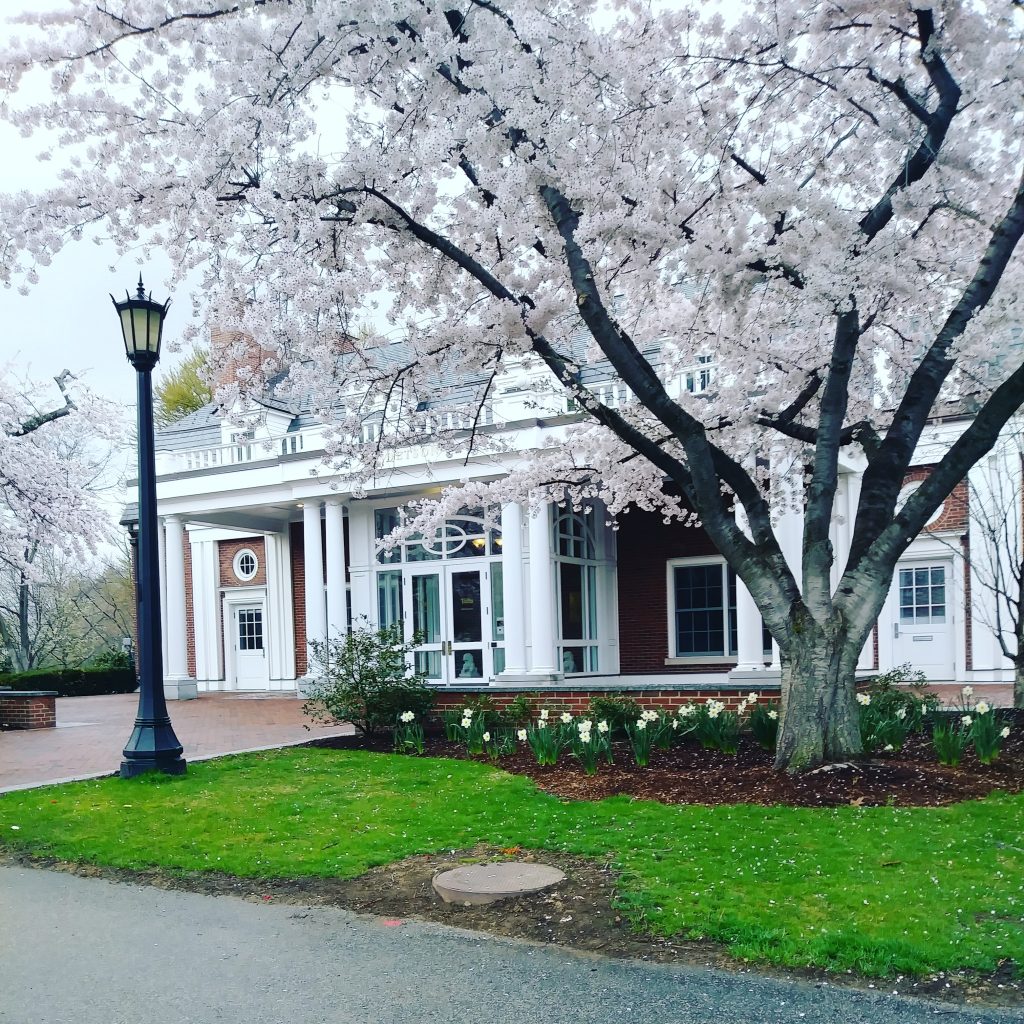
It’s already the end of May, which means that we got to watch our graduates take the stage at Commencement this past weekend! While graduation might mean the end of their time as a student at Tufts, it also signifies the beginning of many exciting things to come. Two of our alumni bloggers, Lennon Wolcott, M.F.A. 2017, and Michelle Connor, Music M.A. 2017, look back at their first year out of graduate school.
How you were feeling this time last year?
Michelle Connor: This time last year, I was feeling a little bit nervous about beginning my search on the job market, especially since I had planned a trip to Italy during the summer months after graduation. I wanted to stay in Boston due to my love for the city as well as my relationship; however, I felt overwhelmed with all of the opportunities and job descriptions. I spoke with some of the faculty members closest to me as well as former supervisors and they suggested that I continue my work in Admissions. I applied for a position in the Graduate Admissions Office, and I was super excited to be hired for the position and continue my service to the university, especially as an alum. Everything worked out for me!
Lennon Wolcott: This time last year, I was overwhelmed. I was trying to finish and install my master’s thesis show centered on decolonization and the rebuilding of community after a loss of culture through sculpture/paper-arts/craft/performance. While at the same time interviewing for AICAD art school faculty printmaking jobs and deciding what kinds of choices I could afford to make after graduation with the cost of living and student loans to pay back.
How would you describe your first year after your graduate program?
MC: During the first year after my graduate program, I realized that there is more to experience than what is found in the classroom. I have grown so much as an individual and coworker over this past year. I am starting to realize where my strengths and passions lie as well as the tasks that I feel the most comfortable with. I learned what matters most to me, where I am meant to be, and how I want to build my avenue to career growth and success. Not be cliché, but life is what you make it. Use your skillset, take advantage of opportunities, and do not be afraid to explore outside of your comfort zone.
LW: It was hard, after 2+ years of immersive art making, to find myself in a space where I had to juggle full time work responsibilities and find time to keep up a practice as an artist. After graduation my instinct was to jump back into art making immediately. However, I needed time to decompress and think through what I learned during grad school. It took time for me to find how my process and work needed to evolve outside of the academic institution. Re-learning how to adapt and create a life for two full time jobs (art and another) have been my primary goal over the year. It has taken about a year for me to add art into my full-time work/life routine, and I hope by next year I will be on more solid footing.
How have you been using your graduate degree?
MC: Although I have not been using my graduate degree in the field of research, I use my graduate experience and degree on a daily basis. One of the most beneficial aspects of a Master of Arts is the chance to focus on your writing while writing about a favorite topic. Moreover, in the humanities and arts, you have the many opportunities to explore your potential as a communicator, presenter, and professional. In the Admissions Office, I spend most of my day constructing concise, clear e-mails and communicating with my co-workers, supervisor, and potential applicants. I do my best to write well and in a style that reflects conversational, yet professional, communication. I credit Tufts to my success as a member of the Admissions team. Writing is one of the most important takeaways from the M.A. degree.
LW: This year I’ve worked on smaller art pieces, while looking at residencies, gallery shows and trying to incorporate art into my daily practice. I have been fortunate enough to get to work in a full-time position with artists coming into graduate programs. I speak to prospective students about what it’s like to enter a graduate program, look at work, and have conversations about pursuing a terminal degree in fine art.
What advice do you have for graduate students who are graduating this year?
MC: I encourage graduate students to truly take the time to explore the many opportunities on the job market. I’m not directly using my primary degree in the context of teaching or research; however, I am using the skillset that I have learned over the course of my undergraduate and graduate career. There are so many jobs available, especially in the Boston area. Take the time to apply to the ones that strike your interest and continue to build confidence to pave your own route to success. Keep in my mind: success is defined by you, yourself.
LW: As graduate students, you have spent two years treating art as an important full-time position in your life. As a Master of Fine Arts, you have gained the skills in the SMFA at Tufts program to further your practice and find the artist who you need to be. It will not be easy, but you have the ability through research, skill, and conceptual based creativity to succeed if you are willing to continue the work.






